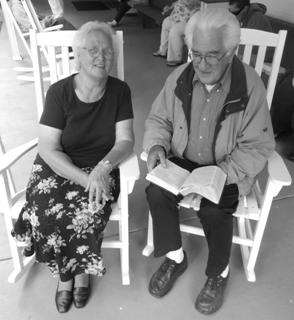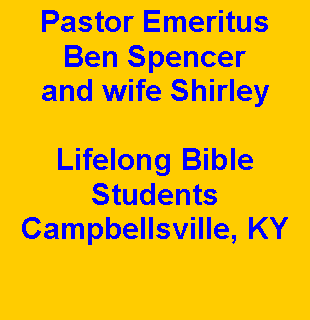

|
When it comes to studying the Bible, many people feel overwhelmed and intimidated. The Bible does intimidate a lot of people. It is a very large book, it was written thousands of years ago, and there are so many different translations and interpretations that the average person can easily throw their hands up in despair in their attempt to read and understand the Bible. Yet, there is hope. We can understand the Bible and find meaning and direction in studying it. The Bible was not given to scholars or pastors; it was given to all God’s people. Of course, there are passages that we have a hard time understanding, but there are many other passages that we can understand and we can certainly grasp the main theme of Scripture which is God’s plan of salvation in Jesus Christ for sinful humanity. So here are some tips on how to study the Bible.
Pray for illumination. Psalm 119:18 says, “Open my eyes that I may see wonderful things in your law.” This was a prayer for illumination into God’s word. This is how we should pray before reading the Bible. The Apostle Paul understood this. After providing inspired direction and advice, Paul admonished Timothy, “Reflect on what I am saying, for the Lord will give you insight into all this” (2 Tim: 2.7). Timothy had a re-
sponsibility to reflect on what Paul had said and study it, but it was the Lord that would give him insight and understanding. Some people just study and don’t pray; others pray and expect God to put things into them without studying. We need to do both. We need to take pains in studying God’s word, but we also need to pray and realize that it is the Holy Spirit who teaches us. Before I read Scripture in the morning, I often pray, “Lord, bless your word, your servant, and this day for God’s glory.” I have been studying the Bible for over twenty years and that includes a lot of seminary training. But I still need the Spirit to help me when I study the Bible. And I can never exhaust the depth and power of God’s word. I learn new things all the time.
Purchase a good study Bible. This is one of the best pieces of advice that I can give you. I have used study Bibles for years and they have enhanced not only my understanding of God’s word but my ability to teach it clearly and effectively. A study Bible has a number of benefits: it has notes under the text that explain theological, historical and cultural issues that may be foreign to you, it has a lengthy concordance in the back, plenty of maps, and a good cross-reference section. I use the NIV Study Bible myself and highly recommend it, but there are a lot of other good study Bibles out there such as the Life Application Study Bible, the NLT Study Bible, and the Wesley Study Bible. Of course, in using them you must remember that the notes are not inspired; it is the text of Scripture that is inspired. But if you keep this in mind, a study Bible can be invaluable in helping you get the most out of your time in God’s word. Along with this, good commentaries can help as well. Some people say, “I just need the Bible and nothing else.” Well, then why do you go to church? Just read the Bible by yourself at home if that’s all you need. No, God teaches us not only through what we read and learn ourselves, but what we learn through others whom God has taught. Don’t deprive yourself of the riches of biblical knowledge that God has given to the church through pastors, teachers, and biblical commentators.
Don’t take verses out of context. Some people approach Bible study like it’s magic. They find a verse and wrench it from its context and make it say things that it was never intended to say. We call this proof-texting. What we need to remember is that a verse is found in a paragraph and that paragraph is found in a book and that book is found in the Bible as a whole. We should read each verse in light of its immediate context and the overall context of Scripture. Let me give you an example. Matthew 21:22 says, “If you believe, you will receive whatever you ask for in prayer.” Does that mean that I can ask today for a brand new Jaguar and there will be one in my driveway when I arrive home from the office this afternoon? I don’t think so. But it says that we will receive whatever we ask for if we believe. What if I really believe that a Jaguar will be there? You see, this is why we must not take verses out of context. Just keep reading in Matthew and even Jesus Himself asked for something that He was denied. He prayed to be spared death on the cross if it were possible, but in the end He resigned himself to God’s will (see Matt. 26:39-42). We don’t always get what we want, but we can trust God to answer our prayers according to His good will and purpose. The purpose of Matthew 21:22 is to encourage us as we pray that God can and will answer our prayers, but these prayers are not to be selfish and they are to be in accordance with God’s will (see James 4:3; 1 John 5:14-15). As this example shows, a good piece of advice is to interpret difficult passages of Scripture in light of passages that are clear. Scripture interprets Scripture, so always read Scripture in light of other passages that can help you understand the text correctly.
Read passages that apply to your particular situation in life. The Bible is a very large book and it can be hard to find your way around in it. It helps to know where to go when you need inspiration or direction. There are books and tracts that help with this by listing verses that relate to specific areas or needs. They are called Bible promise books and they can be quite helpful. They help us find verses that relate to our specific situation. For instance, if you need wisdom in making a decision, read James 1:5. If you are facing financial difficulties, read Matthew 6:25-34 or Philippians 4:19. If you need boldness in witnessing to someone, read Acts 1:8 or 2 Timothy 1:7. If you are facing temptation, read 1 Corinthians 10:1-14. The Bible is a very practical book. It meets us where we are and gives us what we need to live for the Lord each day. But we need to know where to go and what to read. Your Bible study will become more satisfying and relevant as you learn to find in Scripture the passages that relate to your current situation.
Don’t just study the Bible; obey it. James 1:22 says, “Do not merely listen to the word, and so deceive yourselves. Do what it says.” If all we do is study the Bible to increase our head knowledge, we have missed the boat. The Bible is a fascinating book, and if you are inquisitive and love to study, it can be fulfilling just to learn new facts or insights from Scripture. But this is dangerous. We can be incredibly knowledgeable when it comes to theology and the Bible, but this doesn’t mean that we are pleasing to God. The Bible is meant to be obeyed not simply understood. Maybe that’s why Mark Twain once quipped that it is not the parts of the Bible that he doesn’t understand that bother him but the parts that he does understand. God will hold us accountable for what we know. Thus, when we read Scripture, we should ask how this applies to our life and what we need to do to put it into practice. When reading, ask what the passage teaches you about God, about yourself, about salvation, and about living the Christian life. These questions can help you get the most out of Scripture and help you to put it into practice.
Focus on Jesus as you study Scripture. Jesus once told his disciples, “Everything must be fulfilled that is written about me in the Law of Moses, the Prophets and the Psalms” (Luke 24:44). Jesus is the central focus of Scripture, and so if we miss Jesus we miss what the Bible is all about. Even in the Old Testament before the Son of God came into this world to be our Savior, Jesus is still the focus. He is the focus because the Old Testament points toward Jesus Christ. That’s why St. Augustine said, “The New Testament is concealed in the Old, and the Old is revealed in the New.” You need the Old Testament to understand the New, and the New to understand the Old. But the Old leads to the New. Thus, when reading an Old Testament passage, it is important to read it in light of the New Testament and its fulfillment in Jesus Christ. For instance, the Old Testament condemns eating pork, but that dietary law and all others were fulfilled in Christ and now all foods are declared clean (see Mark 7:19; 1 Tim. 4:3-5). The purpose of the Bible is to lead you to Christ.
It’s not enough to have a relationship with the Bible; we need a relationship with Christ through the Bible. As Jesus said, “You study the Scriptures diligently because you think that in them you possess eternal life. These are the very Scriptures that testify about me” (John 5.39). The Bible points us to Christ. So as you study the Bible, allow that time to draw you nearer to Christ and strengthen your faith in Christ as your Lord and Savior.
Back to the Blessed Old Bible
Back to the blessed old Bible, Back to the city of God, Back to the oneness of heaven, Back where the faithful have trod. Back from the land of confusion, Free from the bondage of creeds; Back to the light of the morning, Jesus our Captain leads.
Back to the blessed old Bible, Saints of Jehovah, rejoice; Jesus is calling His people Back to the land of their choice. Often our fathers had sought it While they in Babel in abode; Now we have found the fair city, Church of the living God.
Back to the blessed old Bible, Leaving confusion and strife, Fleeing from Babel to Zion Back to the joy of our life. Over the mountains we wandered, Looking in vain for the right; Now in the evening we’ve found it, Truth of the Gospel light.
Back to the blessed old Bible, Back at the Master’s call, Back to the words of our Savior, Loving, obeying them all. Never in sects to be scattered, Never again to do wrong; Unity, holiness, heaven, Ever shall be our song.
Back to the blessed old Bible, Back to the light of its Word: Be on our banners forever, “Holiness unto the Lord.”
--D. Otis Teasley
|


